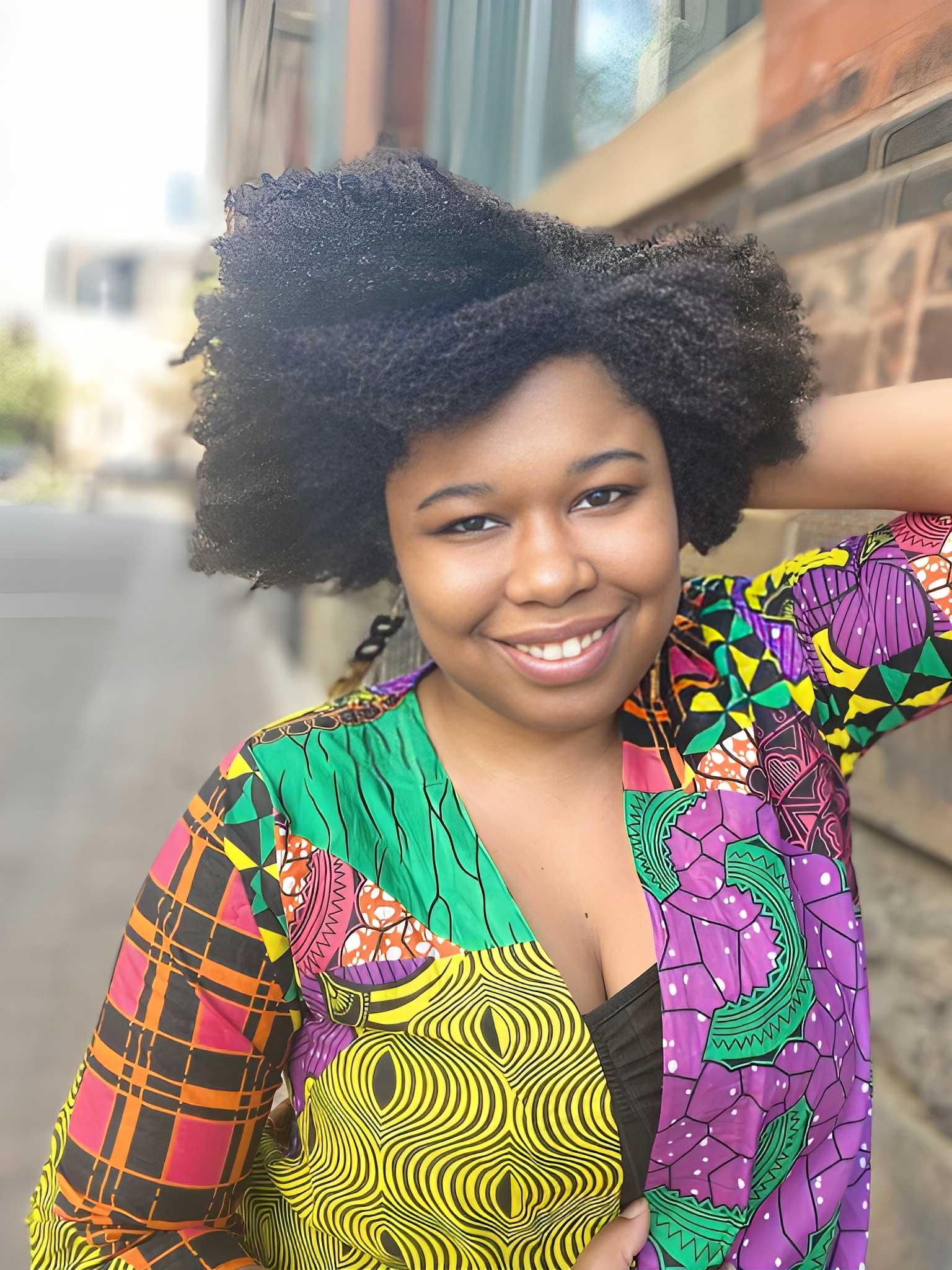Photo credit: Rogene Reid
Zalika Reid-Benta’s debut novel, River Mumma, has been lauded as one of 2023’s best fiction books on a variety of platforms, including CBC Books, Indigo Books, Kobo Books and The Walrus.It was also the October 2023 pick for the CityLine book club. River Mumma is a contemporary fantasy novel that follows a young Black woman as she navigates a quarter-life crisis and embarks on a mythical journey through the streets of Toronto, blending magic, adventure, and the anxieties of everyday modern life.
Reid-Benta’s short fiction collection, Frying Plantain, was shortlisted for the 2020 Toronto Book Award, the 2020 Trillium Book Award, the 2021 White Pine Award and the 2020 Evergreen Award. Frying Plantain was also longlisted for the 2020 Giller Prize. Her debut novel, River Mumma, is shortlisted for the 2024 Trillium Book Award. Her upcoming picture book, The Twelve Days of Jamaican Christmas, will be published in 2025.
We are thrilled to have Zalika Reid-Benta as our 2024 Short Forms Contest judge. Room’s Rose Morris had a chance to chat with Zalika about the role of magic in literature, juggling multiple writing projects at once, and the importance of breaking the rules.
—–
ROOM: Can you tell me a little about your upcoming picture book, The Twelve Days of Jamaican Christmas, and anything else you’re working on now?
Zalika Reid-Benta: Sure! The Twelve Days of Jamaican Christmas is a spin on the classic Christmas song “The Twelve Days of Christmas,” but with Jamaican food. It’s a really fun and exciting project. I am also currently working on a YA dark academia novel and a contemporary adult novel that for now cannot be summarized!
ROOM: You’ve published a collection of short stories, a novel, and now a picture book. Could you speak to some of the similarities and/or differences in your approach to writing these varied genres?
ZRB: Something I’ve come to realize is I never have the same process for anything. I’m attempting to write two novels right now and the process for both is different from each other and also different from how I wrote River Mumma. So, even if I did another short story collection, my approach would be completely different from my approach to writing Frying Plantain. The one unifying fact is that dialogue is key for me.
ROOM: What do you think makes for engaging dialogue in a book?
ZRB: The ability to hear the character’s voice through their dialogue.
ROOM: How do you navigate writing two novels at once? Do you have structured time to work on each one, or is it more like you work on whichever one you’re feeling inspired about in that moment?
ZRB: Definitely the latter. Sometimes I go between the two of them at the same time!
ROOM: Your novel, River Mumma, falls into the realm of magical realism. What do you think is the function of magic in stories, and how does it interplay with realistic narrative?
ZRB: I think magic can act as a mirror to realism, it can emphasize the issues you want to talk about or it can act as a symbol for various themes in the novel. I know for River Mumma, the more spiritual or fantastic elements were representative of history, of ancestry, of heritage, of the things you carry that you don’t necessarily think about consciously on the day-to-day, and the more realistic obstacles like the snow, the Ubers, the trains, they’re representative of the things right in front of you, that you react to, that immediately impact you and the two things collide on this quest.
ROOM: Folklore is also a big part of River Mumma. Why is folklore and mythology important to you and how does it inform your writing?
ZRB: My work deals a lot with characters either grappling with or searching for or celebrating their identity, which leads into heritage, which leads into culture, and folklore can be a very big part of culture in that it’s entwined with history, it’s entwined with spirituality and religion, it’s entwined with community, it’s entwined with storytelling and all of these things can inform identity, so it just felt like a natural step to explore the richness and complexity of folklore and I wanted to do it in a very contemporary, modern way.
ROOM: What have you been reading lately?
ZRB: The Neapolitan Novels by Elena Ferrante. I’m currently on the first book, My Brilliant Friend.
ROOM: Do you have any advice for emerging writers who are submitting to the contest? In your opinion, what makes for a good short forms contest submission?
ZRB: I hesitate with this question because I believe in exceptions more than I believe in the rule, so I can say “this, in my opinion, makes for a good short form contest submission” and then read a story that completely contradicts my opinion, which is what I love about writing. I was the student in class who sometimes made it a point to do exactly what the instructor said you shouldn’t do. So, my advice is twofold and contradictory:
- You have less time in a short story than you do in a novel, of course, and so do not waste your sentences, they each mean a great deal.
- Do what you want.














